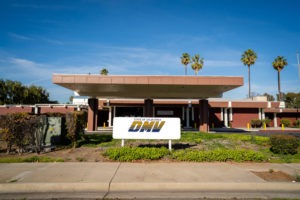
Drivers in California know the Department of Motor Vehicles (DMV) is the government agency responsible for issuing driver’s licenses. However, the DMV can also revoke driving privileges. If your license has been suspended or revoked, you can request a driver safety hearing to challenge the decision.
These hearings are overseen by DMV Driver Safety Hearing Officers. They will ultimately decide whether or not you should be allowed to drive. To maintain your driving privileges, prepare for your hearing and understand the duties of a DMV Driver Safety Hearing Officer.
What Does a DMV Driver Safety Hearing Officer Do?
A DMV driver safety hearing officer is the agency official who will preside over administrative hearings at the California DMV. The DMV driver safety hearing officer is responsible for deciding if someone’s driving privileges should be suspended or revoked. A DMV driver safety hearing officer may determine that you should not be allowed to drive based on past behavior or your physical and mental abilities.
At your hearing, a DMV driver safety hearing officer will:
- Examine evidence
- Listen to witness testimony
- Produce a court ruling
The DMV driver safety hearing officer who oversees your hearing will make a decision on your case.
For a free legal consultation, call (310) 896-2723
What Happens at a DMV Administrative Hearing?
If your driving privileges have been suspended or revoked, you may request a driver safety hearing to dispute the reasoning behind the decision. You must request a hearing within 10 days of receiving notice that the DMV wants to suspend or revoke your driving privileges. Your hearing takes place at a California DMV office, at which you will present evidence demonstrating why you should be able to maintain your driving privileges, such as:
- Your driving record
- Your criminal record
- Your drug or alcohol history
- Your sworn testimony
- Witness statements
- Medical records
A DMV Driver Safety Hearing Officer may cross-examine a witness. Witness statements are given under oath. The DMV Driver Safety Hearing Officer will review the evidence presented for and against you before making their decision.
Hearings are public and typically recorded on audiotape. You will receive a copy of the DMV Driver Safety Hearing Officer’s decision at the end of the hearing.
How Do You Address a Hearing Officer?
At your hearing, you must present yourself as an upstanding citizen and a responsible driver. You may dress casually but appropriately for court. A DMV Driver Safety Hearing Officer is also known as an administrative law judge. Be sure to address the hearing officer as Your Honor or Judge.
You may also address a DMV Driver Safety Hearing Officer as Mr. or Mrs. but avoid using their first name. Your hearing should be treated similarly to a formal court hearing. Rude language and disruptive behavior will not be tolerated.
What Happens After a DMV Driver Safety Hearing?
There are several possible outcomes from a DMV driver safety hearing. Depending on the evidence presented, your hearing officer may decide to:
- Restore your driving privileges
- Place you on probation for a set period of time
- Restrict your driving privileges
- Revoke your driving license
- Suspend your driving license
If your driver’s license has been suspended, you may file for reinstatement after the period of suspension or revocation has ended. If you believe the wrong decision was made at your hearing, you may ask for a departmental review. The DMV will then evaluate the recording of your hearing and the evidence presented to decide if your hearing officer made the right call.
Why Does the DMV Revoke Driving Privileges?
Driving is a privilege, not a guaranteed right. The DMV may revoke your driving privileges if:
- You are not physically or mentally capable.
- You are a senior with certain health concerns.
- You are a minor with a criminal conviction.
- You are guilty of road rage.
- You have been arrested for DUI.
- You refused to submit to a blood-alcohol concentration (BAC) test.
- You have too many accidents or moving violations.
- The DMV determines you are a negligent driver.
Complete a Free Case Evaluation form now
How Should You Prepare for Your Hearing?
Bring a photo ID and any evidence that demonstrates why you should be allowed to drive. The DMV is not concerned with your ability to drive to work and pay your bills. Gather documentation that can prove:
- The police officer who arrested or pulled you over had no right to do so
- The proper legal procedure was not followed in your case
- The accusations against you are false
- The evidence against you is inadmissible
If you need a language translator, bring one to your hearing. Contact a Driver Safety Office if you need a sign language interpreter to be present at your hearing.
If for any reason, you are not ready for your hearing, withdraw your petition at least five days before. If you fail to show up to your hearing, your request will be denied and you will have to wait 90 days before you may submit a new one.
Do You Need a Lawyer for a DMV Driver Safety Hearing?
You are not required to hire a lawyer for a DMV Driver Safety Hearing but it is recommended that you do so. You are presumed guilty unless you can disprove the charges against you. A traffic attorney will better understand why your driving privileges are at risk and how to prove you should be permitted to retain them.
A DMV driver safety hearing often precedes the trial for any criminal charges you may face. If you have a DUI charge, winning the DMV hearing may not affect the outcome of your criminal case. However, working with a lawyer on your DMV hearing can help you avoid additional fines and legal paperwork.
Call or text (310) 896-2723 or complete a Free Case Evaluation form